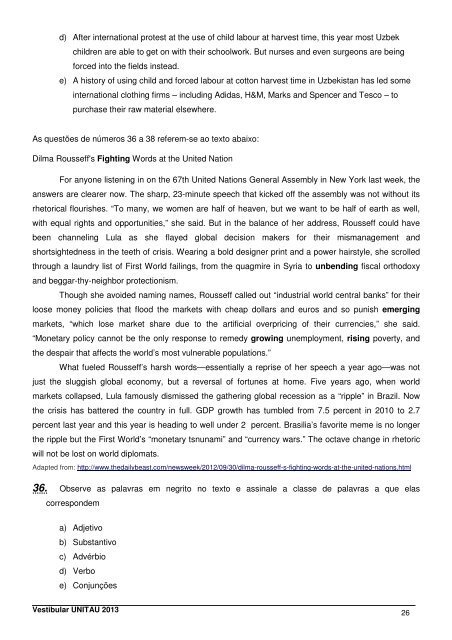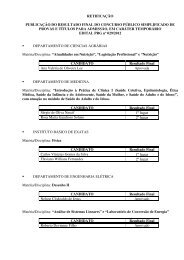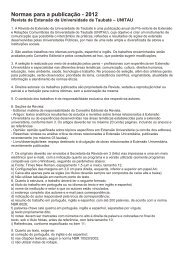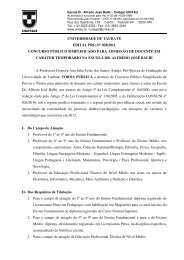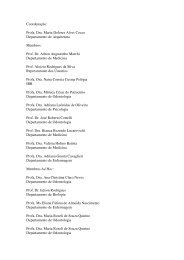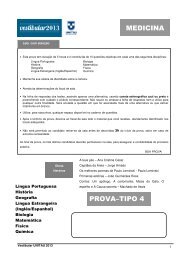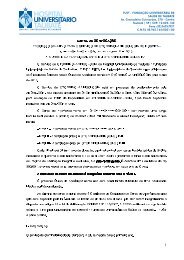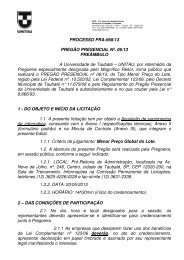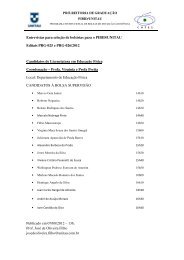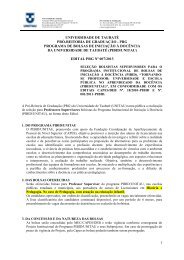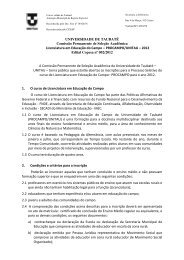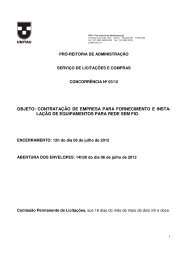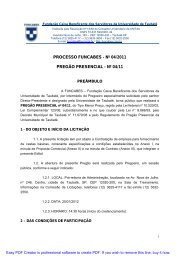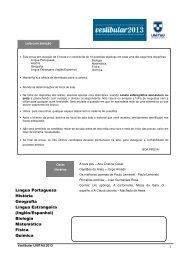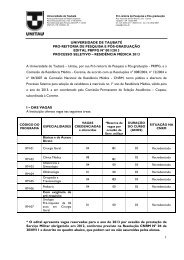MEDICINA PROVA–TIPO 2 - unitau
MEDICINA PROVA–TIPO 2 - unitau
MEDICINA PROVA–TIPO 2 - unitau
Create successful ePaper yourself
Turn your PDF publications into a flip-book with our unique Google optimized e-Paper software.
d) After international protest at the use of child labour at harvest time, this year most Uzbek<br />
children are able to get on with their schoolwork. But nurses and even surgeons are being<br />
forced into the fields instead.<br />
e) A history of using child and forced labour at cotton harvest time in Uzbekistan has led some<br />
international clothing firms – including Adidas, H&M, Marks and Spencer and Tesco – to<br />
purchase their raw material elsewhere.<br />
As questões de números 36 a 38 referem-se ao texto abaixo:<br />
Dilma Rousseff's Fighting Words at the United Nation<br />
For anyone listening in on the 67th United Nations General Assembly in New York last week, the<br />
answers are clearer now. The sharp, 23-minute speech that kicked off the assembly was not without its<br />
rhetorical flourishes. “To many, we women are half of heaven, but we want to be half of earth as well,<br />
with equal rights and opportunities,” she said. But in the balance of her address, Rousseff could have<br />
been channeling Lula as she flayed global decision makers for their mismanagement and<br />
shortsightedness in the teeth of crisis. Wearing a bold designer print and a power hairstyle, she scrolled<br />
through a laundry list of First World failings, from the quagmire in Syria to unbending fiscal orthodoxy<br />
and beggar-thy-neighbor protectionism.<br />
Though she avoided naming names, Rousseff called out “industrial world central banks” for their<br />
loose money policies that flood the markets with cheap dollars and euros and so punish emerging<br />
markets, “which lose market share due to the artificial overpricing of their currencies,” she said.<br />
“Monetary policy cannot be the only response to remedy growing unemployment, rising poverty, and<br />
the despair that affects the world’s most vulnerable populations.”<br />
What fueled Rousseff’s harsh words—essentially a reprise of her speech a year ago—was not<br />
just the sluggish global economy, but a reversal of fortunes at home. Five years ago, when world<br />
markets collapsed, Lula famously dismissed the gathering global recession as a “ripple” in Brazil. Now<br />
the crisis has battered the country in full. GDP growth has tumbled from 7.5 percent in 2010 to 2.7<br />
percent last year and this year is heading to well under 2 percent. Brasilia’s favorite meme is no longer<br />
the ripple but the First World’s “monetary tsnunami” and “currency wars.” The octave change in rhetoric<br />
will not be lost on world diplomats.<br />
Adapted from: http://www.thedailybeast.com/newsweek/2012/09/30/dilma-rousseff-s-fighting-words-at-the-united-nations.html<br />
36. Observe as palavras em negrito no texto e assinale a classe de palavras a que elas<br />
correspondem<br />
a) Adjetivo<br />
b) Substantivo<br />
c) Advérbio<br />
d) Verbo<br />
e) Conjunções<br />
Vestibular UNITAU 2013<br />
26


